 (source)
(source)
|
Arthur L. Caplan
(31 Mar 1950 - )
American medical ethicist whose research covers medical ethics for medical professionals, health policy, ethical issues in science and technology, history and philosophy of medicine and the life sciences. His books for lay people include If I Were a Rich Man Could I Buy a Pancreas? (1992). Being considered one of the top experts in bioethics, he is often seen in the media, commenting on such sensitive issues such as organ transplants, embryo implantation, cloning, artificial hearts and assisted suicide.
|
Science Quotes by Arthur L. Caplan (12 quotes)
[Cloning] can't make you immortal because clearly the clone is a different person. If I take twins and shoot one of them, it will be faint consolation to the dead one that the other one is still running around, even though they are genetically identical. So the road to immortality is not through cloning.
— Arthur L. Caplan
Quoted in 'Baby, It's You! And You, And You...', Time magazine (19 Feb 2001).
A moral principle in genetic testing is that it should always be done with the consent of the individual. No one wants someone snooping into his DNA.
— Arthur L. Caplan
Quoted in S.C. Gwynne, 'Genes and Money', Time magazine (12 Apr 1999).
If people think that the parts are treated like commodities, bought and sold, they may be much less willing to give. Bodies aren't the same as Coca-Cola cans.
Commenting on the discovery of five human heads in a leaking package by a parcel carrier company during transit from Philadelphia to Denver.
Commenting on the discovery of five human heads in a leaking package by a parcel carrier company during transit from Philadelphia to Denver.
— Arthur L. Caplan
Lindsey Grunson, 'Signs of Traffic in Cadavers Seen, Raising Ethical Issues', New York Times (25 Sep 1986), A14.
Just the Human Genome Project alone is the Full Employment Act for bioethicists.
— Arthur L. Caplan
Quoted in Michael Schrage, 'Increasing Medical Dilemmas Mean Job Security for Budding Bioethicists', San Jose Mercury News (13 Oct 1992), 3D. In Donna Jeanne Haraway and Lynn M. Randolph, [email protected] (1997), 109.
People ask, “Is the science going to run ahead of the ethics?” I don't think that’s always the problem. I think it’s that the science runs ahead of the politics. Bioethics can alert people to something coming down the road, but it doesn't mean policy and politicians are going to pay attention. They tend to respond when there’s an immediate crisis. The job of the ethicist, in some ways, is to warn or be prophetic. You can yell loudly, but you can’t necessarily get everybody to leave the cinema, so to speak.
— Arthur L. Caplan
Interview by Karen Pallarito in The Scientist (Jan 2008), supplement, 74.
Renegade scientists and totalitarian loonies are not the folks most likely to abuse genetic engineering. You and I are--not because we are bad but because we want to do good. In a world dominated by competition, parents understandably want to give their kids every advantage. ... The most likely way for eugenics to enter into our lives is through the front door as nervous parents ... will fall over one another to be first to give Junior a better set of genes.
— Arthur L. Caplan
'What Should the Rules Be?', Time magazine (22 Jan 2001).
The challenge is for bioethicists to position themselves to be on panels, boards and other decision making bodies where public policy positions will be established—where the exploding changes in health care that are now underway will be addressed.
— Arthur L. Caplan
In Hugo Tristram Engelhardt and H. Tristram Engelhardt, Jr., Global Bioethics (2006), 359.
The time to talk about it [genetic engineering to improve a baby's genes] in schools and churches and magazines and debate societies is now. If you wait, five years from now the gene doctor will be hanging out the MAKE A SMARTER BABY sign down the street.
— Arthur L. Caplan
'If We Have It, Do We Use It?', Time magazine (13 Sep 1999).
The use of fetuses as organ and tissue donors is a ticking time bomb of bioethics.
— Arthur L. Caplan
Quoted in Andrea Dorf and Joe Levine 'Help From The Unborn Fetal-Cell', Time magazine (12 Jan 1987).
There has never been just 'coach class' health care, but with these amenities you are seeing people get priorities according to your ability to pay. It's one thing to say you get perks; it's another to say you can buy your way to the head of the line.
— Arthur L. Caplan
Quoted in Nancy S. Tilghman, 'Southampton Hospital Drops V.I.P. Idea', New York Times (27 Jun 2004), L13.
When you're talking deaths in clinical trials, mistakes are not an option. It's just an area where we have to have absolute, foolproof reporting in place.
— Arthur L. Caplan
Stephanie Saul, 'U.S. Not Told of 2 Deaths During Study of Heart Drug ', New York Times (4 Jan 2006).
With terminal illness, your fate is sealed. Morally, we're more comfortable with a situation where you don't cause death, but you hasten it. We think that's a bright line.
Comparing the U.S. with Switzerland, where assisted suicide is legal for patients suffering 'intolerable health problems.'
Comparing the U.S. with Switzerland, where assisted suicide is legal for patients suffering 'intolerable health problems.'
— Arthur L. Caplan
Quoted in Amanda Ripley, 'True Freedom', Time magazine (20 Apr 2003).
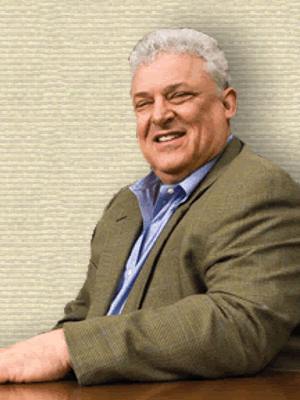
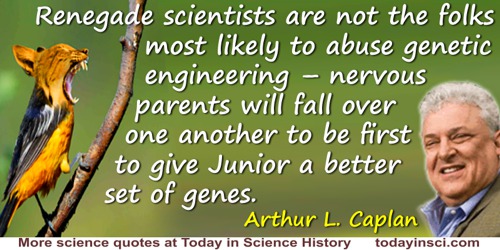
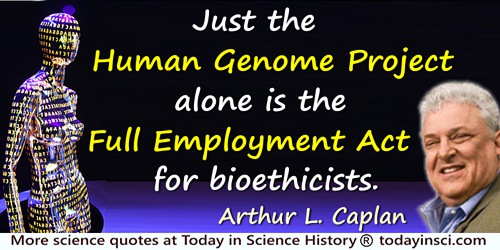
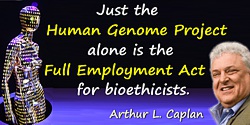
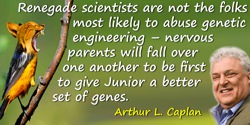
 In science it often happens that scientists say, 'You know that's a really good argument; my position is mistaken,' and then they would actually change their minds and you never hear that old view from them again. They really do it. It doesn't happen as often as it should, because scientists are human and change is sometimes painful. But it happens every day. I cannot recall the last time something like that happened in politics or religion.
(1987) --
In science it often happens that scientists say, 'You know that's a really good argument; my position is mistaken,' and then they would actually change their minds and you never hear that old view from them again. They really do it. It doesn't happen as often as it should, because scientists are human and change is sometimes painful. But it happens every day. I cannot recall the last time something like that happened in politics or religion.
(1987) -- 


